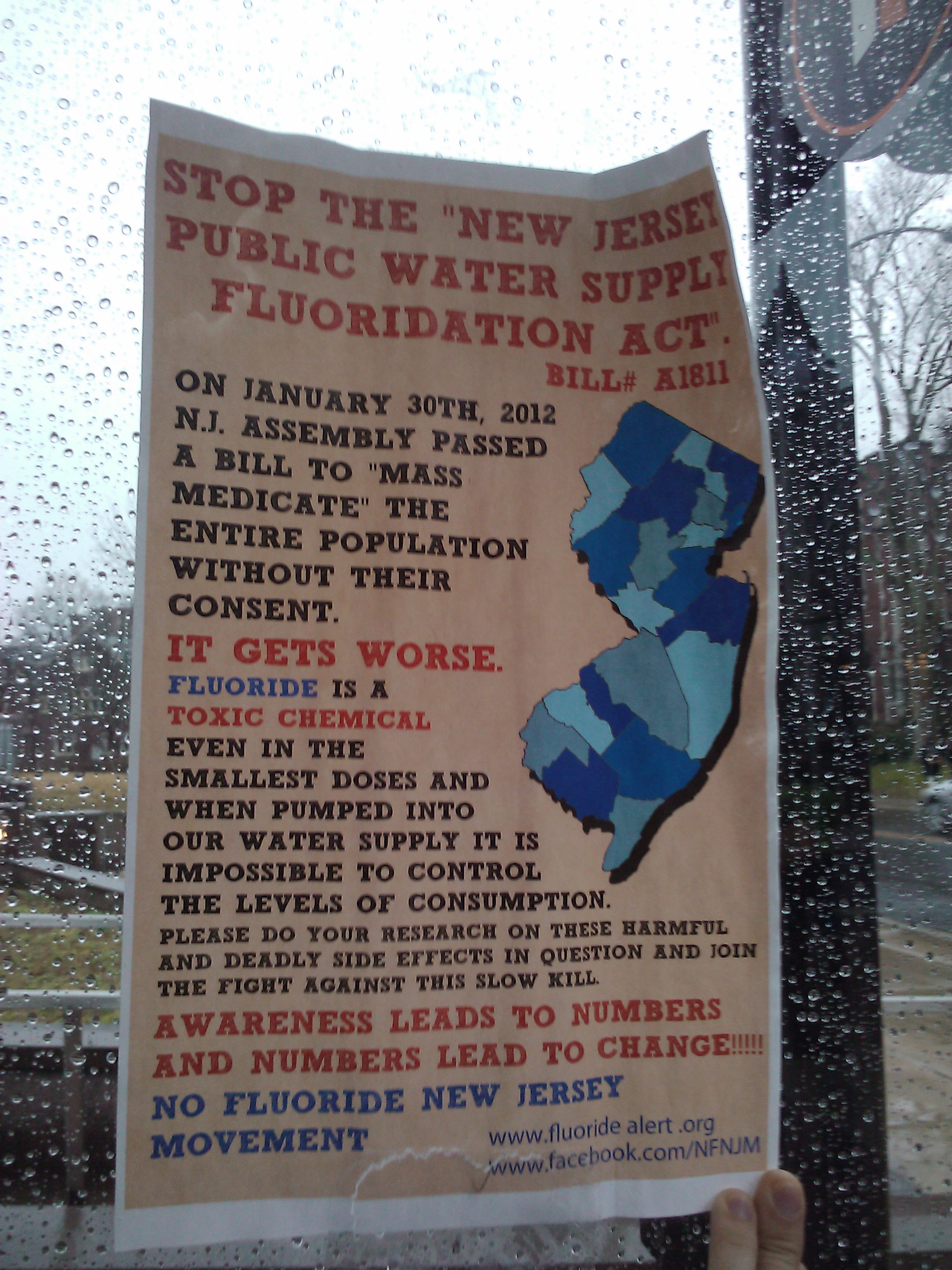I saw this poster at a bus stop on campus a couple weeks ago:

If you can't read it, the title reads: "Stop the New Jersey Public Water Supply Fluoridation Act" and it goes on to say "Fluoride is a toxic chemical even in the smallest doses and when pumped into our water supply it is impossible to control the level of consumption." (emphasis added)
I took a picture but didn't think about it again until I saw this article on Friday: "In New Jersey, a Battle Over a Fluoridation Bill, and the Facts" (NYT) by Kate Zernike. I appreciate that she calls the fearmongering what it is -- a conspiracy theory:
While 72 percent of Americans get their water from public systems that add fluoride, just 14 percent of New Jersey residents do, placing the state next to last... A bill in the Legislature would change that, requiring all public water systems in New Jersey to add fluoride to the supply. But while the proposal has won support from a host of medical groups, it has proved unusually politically charged.
Similar bills have failed in the state since 2005, under pressure from the public utilities lobby and municipalities that argue that fluoridation costs too much, environmentalists who say it pollutes the water supply, and antifluoride activists who argue that it causes cancer, lowers I.Q. and amounts to government-forced medicine.
Public health officials argue that the evidence does not support any of those arguments — and to the contrary, that fluoridating the water is the single best weapon in fighting tooth decay, the most prevalent disease among children.
But they also say they are fighting a proliferation of misleading information. While conspiracy theories about fluoride in public water supplies have circulated since the early days of the John Birch Society, they now thrive online, where anyone, with a little help from Google, can suddenly become a medical authority.
The whole article is worth a read. I think it's a pretty good journalistic take on a charged issue that is a political controversy but not a scientific one. It gives some context as to why people are against it -- a few misleading studies amplified by word of mouth and the Internet -- but also emphasizes which side the evidence base (overwhelmingly) backs up.
Further, there are some echoes here of the anti-vaccine movement, in that a move to reduce the threshold of acceptable fluoride levels by HHS was taken to be an acknowledgment that the worst fears of the fluoridation foes were vindicated. That parallels how any mention of efforts to improve vaccine safety (a good thing) is misshapen by antivaccine activists into an acknowledgment that their theories have been vindicated. In short, I'm looking forward to Seth Mnookin's take on all this.